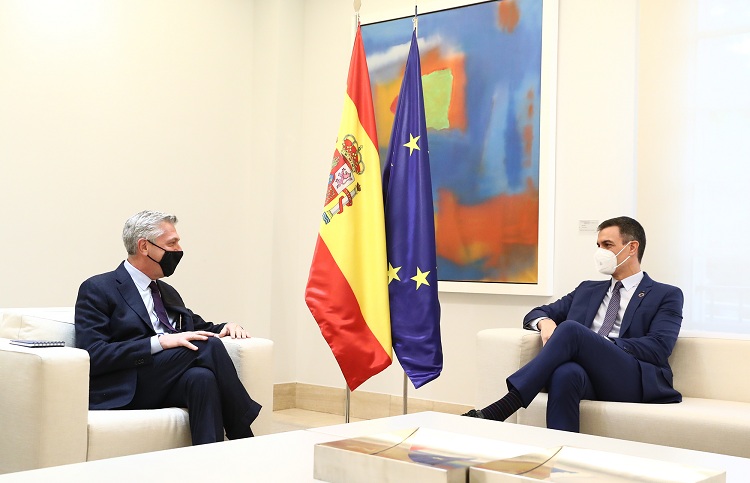Eduardo González
The President of the Government, Pedro Sánchez, and the United Nations High Commissioner for Refugees (UNHCR), Filippo Grandi, will preside today in Madrid a commemorative event for the 70th anniversary of the 1951 Geneva Convention Relating to the Status of Refugees.
The event will be held at the Casa de America in the Spanish capital and will feature the testimony of refugee women from Afghanistan and Somalia, as well as the intervention of the writer and journalist Rosa Montero and the Spanish jurist and honorary president of the Spanish Committee of UNHCR, Antonio Garrigues.
Canadian Prime Minister Justin Trudeau and soprano and Honorary and Lifetime UNHCR Goodwill Ambassador Barbara Hendricks will also participate virtually in the event, which will be moderated by TV presenter and UNHCR Goodwill Ambassador Jesús Vázquez, according to UNHCR Spain.
Spain acceded to the Geneva Convention on July 22, 1978 and the right to asylum was enshrined that same year in Article 13.4 of the Spanish Constitution. The first law regulating the right to asylum and refugee status in Spain was passed in May 1984 and amended by Law 9/1994, Royal Decree 203/95 implementing the law and Law 12/2009 of October 30. As an international organization created by the United Nations, the presence of UNHCR is regulated by a headquarters agreement with the Ministry of Foreign Affairs.
The celebration of this event in Madrid comes a few months after the Spanish Commission for Refugee Aid (CEAR) assured, in its 2021 Annual Report that Spain again “let down” refugees in 2020, “approving only one in 20 asylum applications, far from the average recognition rate of 33% of European Union countries.”
The document, published last June, also lamented the “scant recognition” granted by Spain to victims of persecution by non-state actors (gangs, criminal gangs, etc.) and the “obstacles” imposed on people from countries in conflict, such as Syria, Yemen or Palestine, “due to the requirement of a transit visa”. The document also denounced that, despite the decrease in arrivals through Ceuta and Melilla, throughout 2020 there were at least 212 “hot returns”, a practice that, it recalled, has been questioned by the European Court of Human Rights in Strasbourg and by the Spanish Constitutional Court itself.
In the report, CEAR warned that the new EU Pact on Migration and Asylum does not offer “solutions based on a shared solidarity with the countries of southern Europe” and reduces that solidarity to an “à la carte menu” beneficial to the “northern states of the Union”. Precisely, a dozen organizations (among them, Amnesty International, CEAR, Coordinadora de Organizaciones para el Desarrollo, Médicos del Mundo, Oxfam Intermón or Save the Children) warned last October in a joint press release that the Pact, presented by the European Commission in September 2020, “ignores the international treaties ratified by the States and their obligations to respect, protect and guarantee human rights” and regretted “the Spanish government’s commitment to this new approach to European migration policy”.







